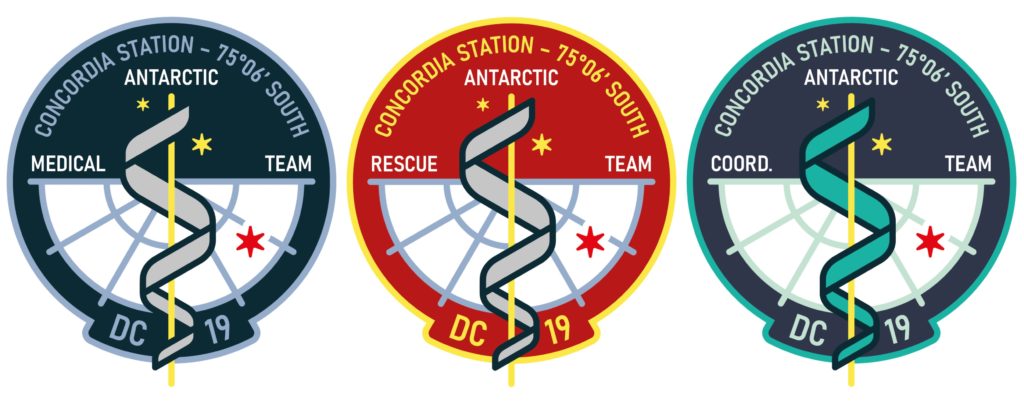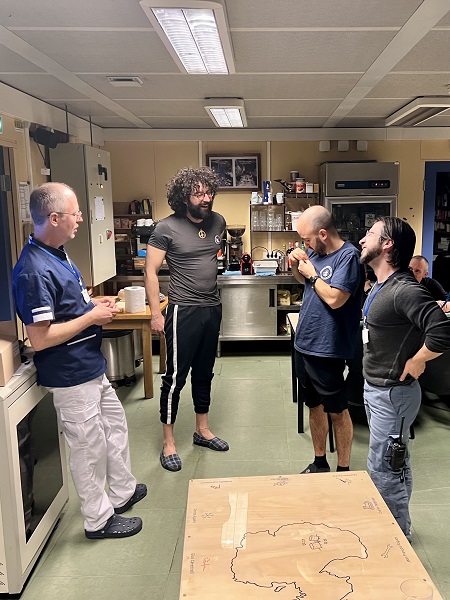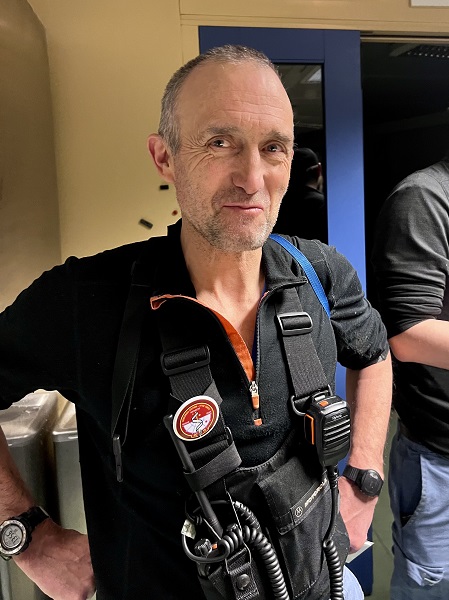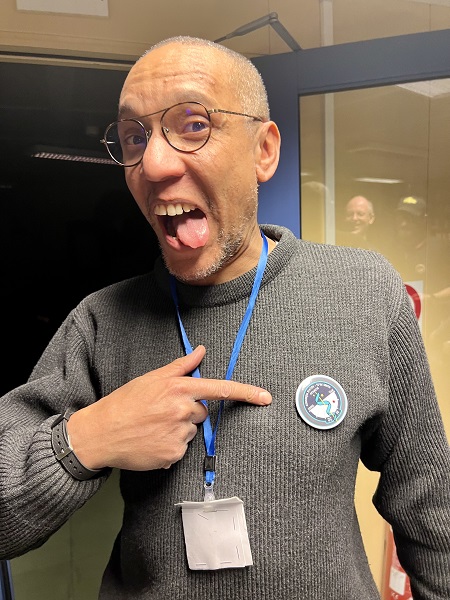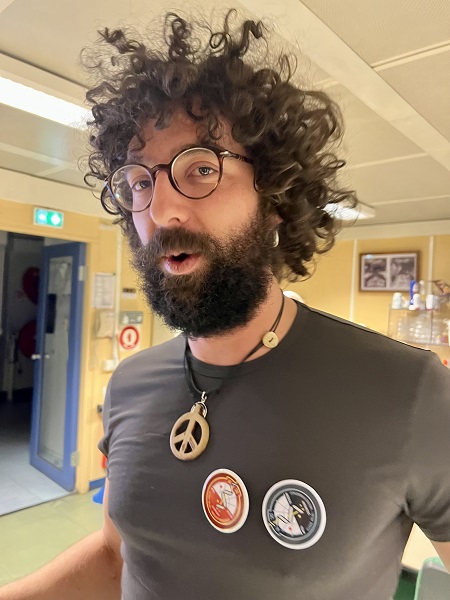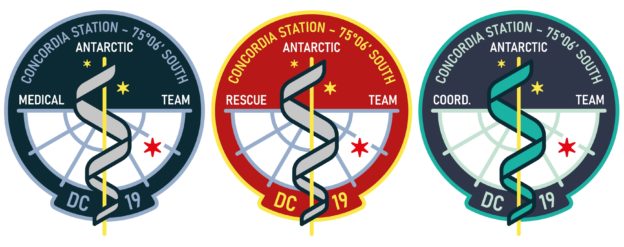I realise that I’ve fallen a long way behind in writing this blog. Between the inventories to complete and the permanent darkness that slows us down and turns us soft in the head, it wasn’t so easy to find the time and energy to get started.
One of the tasks of a doctor working at a southern or Antarctic base is to form a team to support him, or even stand in for him.
I’m a bit more privileged than my colleagues at the other French Southern and Antarctic Lands stations because there are two doctors at Concordia. In fact, our station is one of the best possible analogues for future lunar or Martian bases and, since the station’s inception, the European Space Agency (ESA) has funded a post for a research doctor responsible for running the (many) programmes carried out on winterers.
This research doctor is not supposed to be involved in medical care, but it’s still invaluable to have his presence and expertise. Our organisation means that, if necessary, he is also responsible for directing the external rescue team while I prepare to receive the victim. This year, the research doctor is Sascha, a young German neurosurgeon.
The first step was to recruit a team of volunteers to assist Sascha and me. While this year’s rescue team is mainly French, my medical assistants are all Italian: Jacopo, our cook, Domenico, our astronomer (who, before Concordia, was a robotics engineer) and Luca, the Italian glaciologist (who is a chemist back in Italy).
I then had to devise a programme to enable these people, who had no previous medical training, to be able to provide semi-autonomous care in just a few weeks: measure ‘vitals’, do an electrocardiogram, take an X-ray using our equipment, do blood tests, prepare infusions or injectable medicines and give injections, do simple sutures, manage hygiene and asepsis in the operating theatre, be an operating assistant to Sascha or an anaesthetist’s assistant to me…
Almost as much of a challenge as giving a GP or an emergency doctor surgical or dental skills!
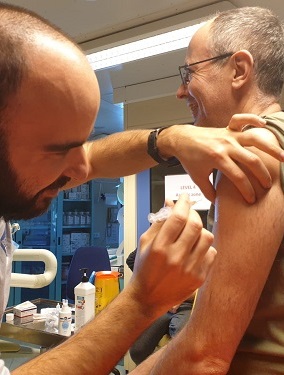
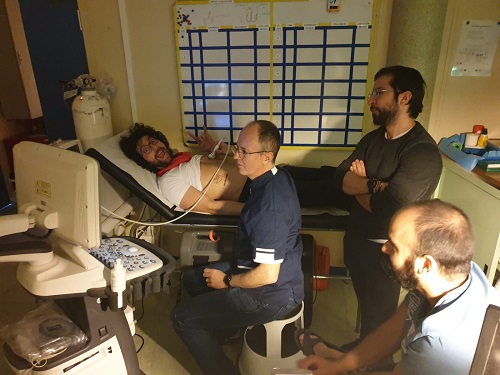
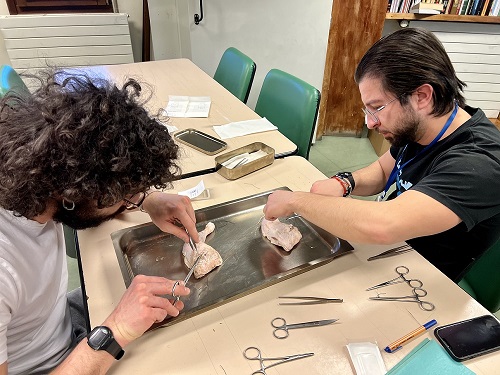
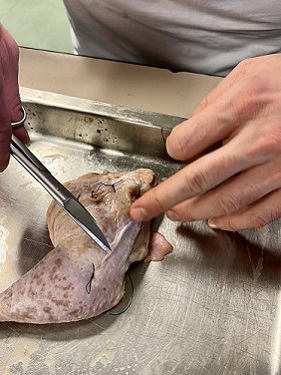
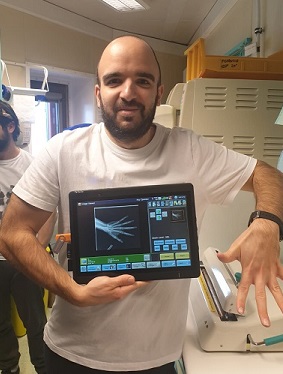
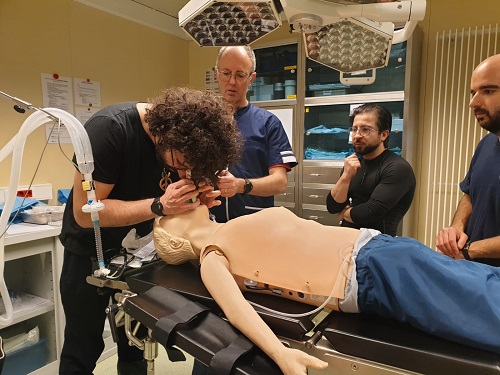
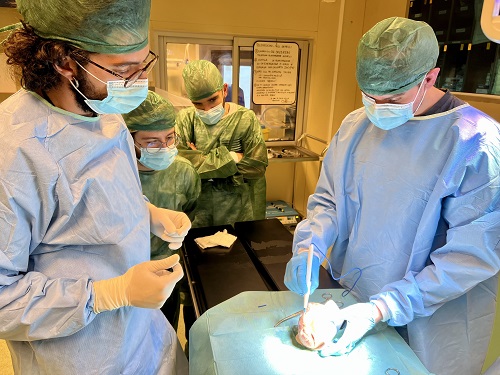
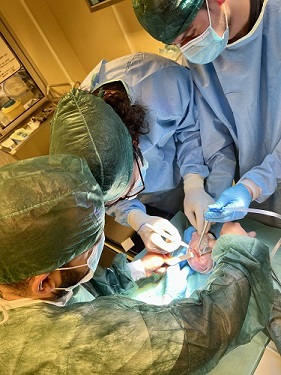
And you know what? They rose to the challenge, and were more than up to the task. Little by little (but in just 3 months), they have acquired skills, concepts and ways of thinking that were totally foreign to them before.
At the beginning of May, we organised a major 3-hour exercise to put the skills they had acquired into practice.
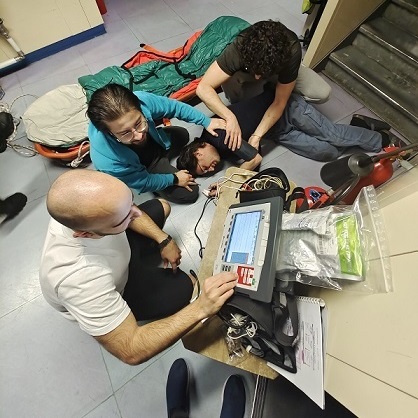
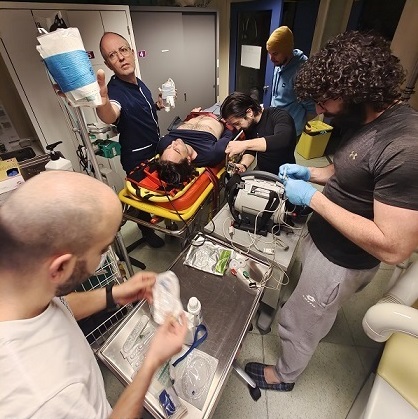
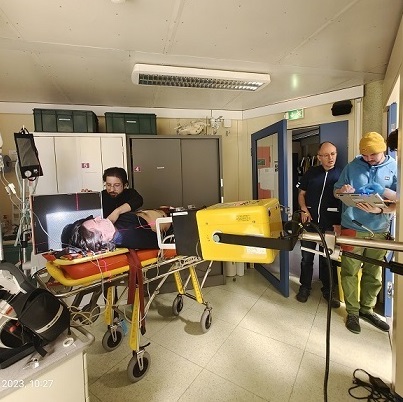
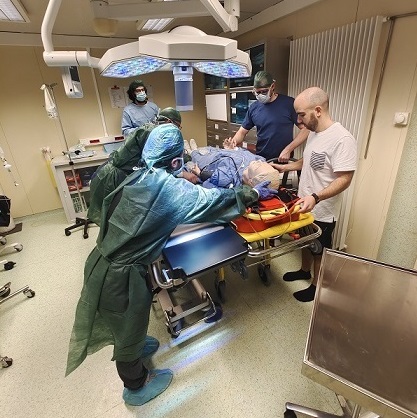
And, as my ‘students’ had proved themselves, I logically organised a ‘graduation ceremony’.
That’s how I finally had the opportunity to get out the badges that Julien Dubedout had so skilfully designed for me (Thank you! Thank you! Thank you!).
There were badges for the Medical team, of course, but as it’s a chain that involves everyone, there were also badges for the Rescue team and for those who have to stay and ensure general coordination (the Station Leader, the ICT and the Technical Manager).
A great team!
